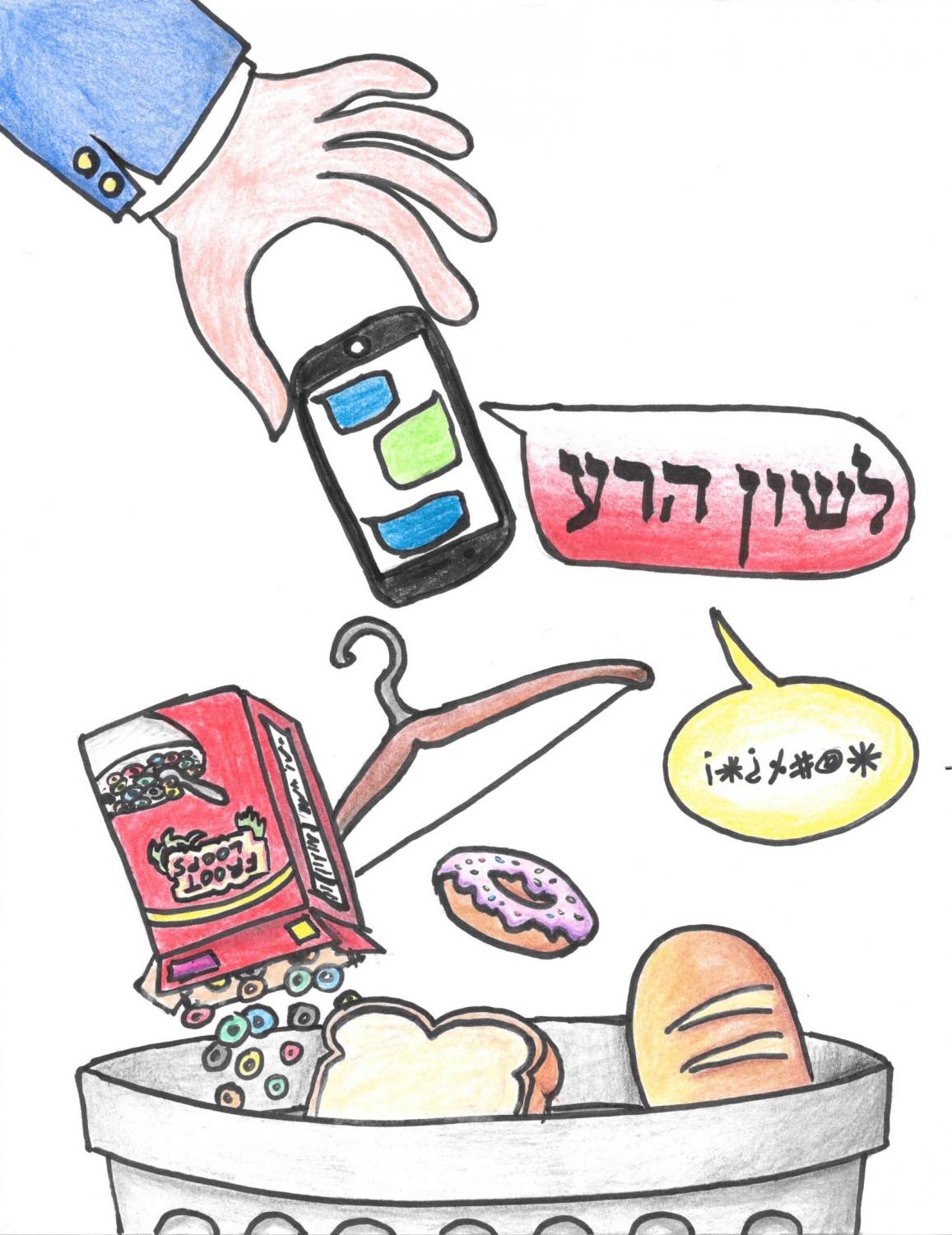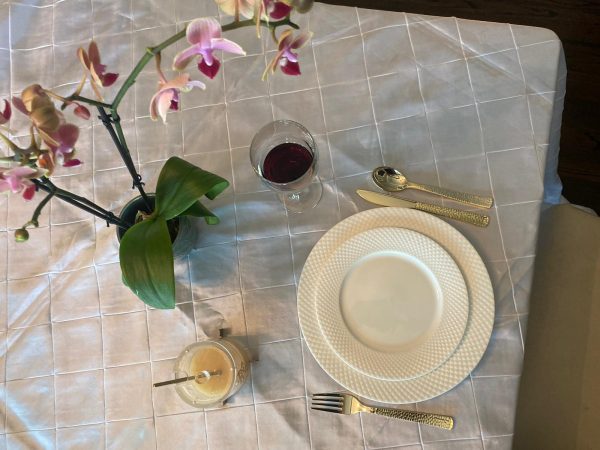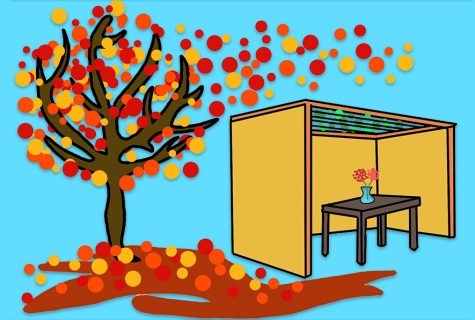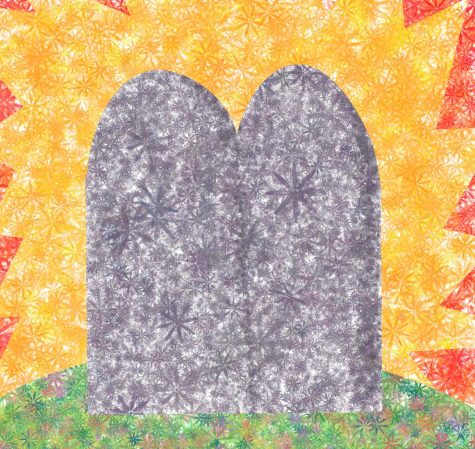The chametz in your closet: Mitzvot of Pesach in an age of freedom
How can we pretend to be slaves when housekeepers clean for the seder and waiters bring the food?
There are many things that make the nights of Passover different from all other nights.
The classic examples are: On other nights we don’t dip more than once, on this night we dip twice. Instead of vegetables, we eat bitter herbs. Usually we sit upright, and on this night we recline. And of course, instead of bread, we eat matzah.
 Sam Rubanowitz
Sam Rubanowitz
In addition, on this night, we are supposed to imagine ourselves as the people in the Torah. During Simchat Torah, we do not focus on imagining what it would have been like to be at Har Sinai, we simply engage in the pure joy of having the Torah. On Hanukkah, though we re-enact the miracle of the oil, we do not imagine ourselves as Maccabees fighting the Romans.
But during our seders, we are uniquely commanded to pretend we are the slaves escaping Egypt. We should think as though Pharaoh has been killing our children, depriving us of sleep, restricting our religious practice, having his officers physically punish us. Then, we should be the Jews running through the miraculously split Red Sea, racing to our freedom, away from bondage.
This, truly, is what makes the night of Passover different from all other nights, and all other Jewish holidays. But how can we pretend to be slaves when so many of us have spent Passover at an expensive hotel program, paying thousands of dollars to then mentally put ourselves in the place of ancient, enslaved Hebrews who could never have dreamed of the luxury at a Marriott or Four Seasons? While we imagine ourselves as those in bondage, food is brought to us by servers being paid minimum wage.
If we are not at hotels, many are in homes that have been vacuumed, cleaned with Lemon Pledge, and eating expensive meats and desserts made with chemicals the Israelites could not have imagined ever existing. Many of us even get help from housekeepers to clean the house and cook the meals for Passover.
So how can we then pretend we are slaves? We are not being whipped, abused, persecuted, enslaved, separated, tyrannized. We may experience some anti-semitism, but in terms of fate, circumstances, lifestyle, we are incredibly disconnected from the Jews in the story of Pesach.
In an age where this mitzvah is nearly impossible, one way to celebrate Pesach more deeply is to focus on the other main mitzvah of the holiday, which is being in the spirit of searching for chometz — leavened bread — which many sages say is symbolic of the inner cleansing of the yetzer hara – the evil inclination inside us. Judaic Studies teacher Rabbi Lieberman points out that even though most days of the year chametz is totally fine, there are a few days when it is suddenly a huge sin to have it in one’s home. We search in our house for chametz to burn and sell it, when after Pesach we eat it frequently. Similarly, we should look for the things in everyday life that are seemingly regular, but actually need to be burned.
Really, we are all enslaved to different things these days, whether it be our cell phones, gossip, online shopping, or even eating carbs. These things we do are the evil — the yetzer hara, the chometz — in our everyday lives. What makes Passover different is it makes us scrutinize the seemingly ordinary.
Cleaning for Passover coincides with an American tradition known as “spring cleaning,” which also involves an intensive scrutiny of the ordinary: in particular, one’s home. This year I took part in both traditions. The cleaning which required the most arduous depth was cleaning out my closet.
I have had a love affair with fast fashion, thrifting and clothing in general since I knew how to shop. I have a lot of stuff that just doesn’t fit me anymore. Well, used to have, anyway. With my move-out date approaching quickly as I look to college, the prospect of fitting all my clothes into a tiny dorm closet is daunting.
Truthfully, part of the reason I did not want to say farewell to so many of these items is because it is difficult to let go of something that has been in your life for a long time. There were numerous pairs of pants I discarded because they simply did not fit me, something else I did not want to admit. It was staggering how many items I let jam my dresser in an attempt to have more clothes, more options, more, more, more.
While searching for “chametz,” I realized I am not a size 2 anymore. I am not 12 years old, I am not even 15. After Pesach, I will be 18. I will be an adult, and I cannot hoard needless items of clothing simply because I want them.
Passover marks a great rebirth and liberty of the Jewish people, and spring is a time for new things to grow and flourish. The sages say chametz is symbolic of the yetzer hara — the evil inclination inside us. But there are other physical objects in our home and our lives that create evil, which we can get rid of.
While having too many clothes may seem like a superficial epiphany to have while trying to purge my yetzer hara, not my closet, the act of going through my closet creates a parallel mindset which enables us to find real spiritual and emotional cleansing.
Here’s one example I found of how this works. There were many shirts I discarded that sentimentally reminded me of people who I have not seen in a while. This year, instead of keeping them around through shirts I never wear, I actually reached out to them to see how they were doing. By getting rid of what I did not need anymore, I fully realized what I actually needed to do.
To me, the removal of all the different types of chometz in our lives and imagining ourselves as slaves are really the two most important and unique mitzvot of Passover. Because the latter is so difficult in this era, we should literally, not just imaginatively, unshackle ourselves from the evil within us. Though we sit in the lap of luxury, we can still connect to our enslavement by eradicating the many breeds of chometz.
Hopefully you’ll heavily tip the server bringing you food at a hotel program, or your housekeeper, or give thanks or even a Coffee Bean gift card to the family member who puts the most effort into cleaning. Hopefully you’ll reach out to old friends and throw out old clothes. Hopefully you’ll kick a bad habit, call your grandmother — whatever — and as you burn the last bits of chometz this week, also set flame to the inner evil in your life.

Hannah Jannol was Editor-in-Chief of the Boiling Point during the 2017-2018 school year. Since then, she has attended The New School and written for their HerCampus chapter; edited obituaries for The Trace; written poetry for Eleven and a Half literary magazine, and run Instagram and Twitter for Uptown Stories. Her favorite parts of being on Boiling Point were production night and writing long-form features stories, many of which won awards from CSPA, Quill & Scroll and the American Jewish Press Association.










